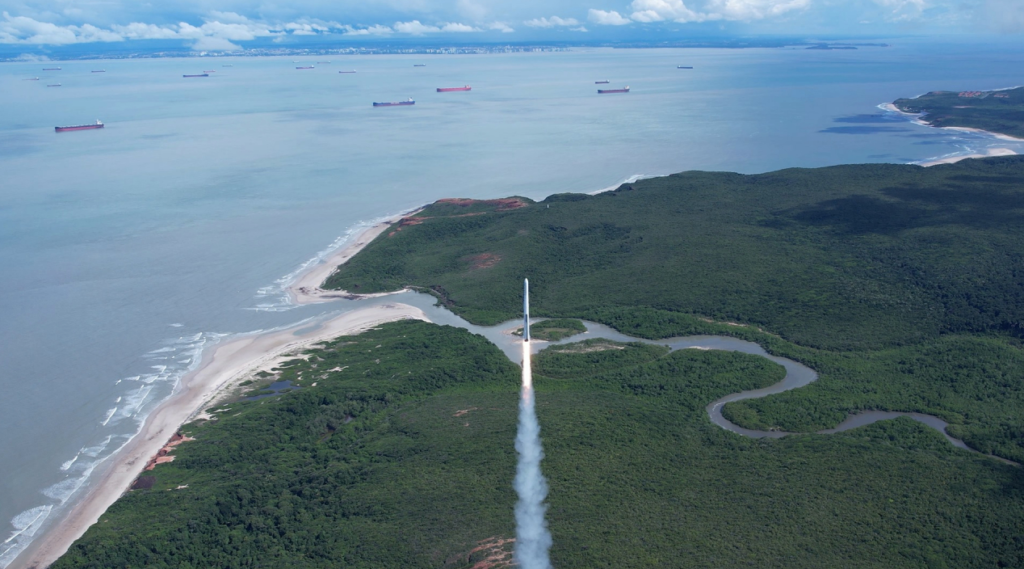|
Getting your Trinity Audio player ready...
|
On Tuesday, South Korean startup Innospace announced the successful launch of Hybrid Rocket Hanbit-TLV, a hybrid space rocket, which opened a new era for the country’s private space sector. The rocket was launched from the Alcantara Space Center in Brazil and flew for 4 minutes and 33 seconds, with its engine burning for 106 seconds after liftoff before landing safely in Brazilian waters.
The launch marked the first successful launch of a space launch vehicle in the Korean private sector, demonstrating the world’s first successful launch of a hybrid rocket. The milestone was achieved after four attempts, including the original launch scheduled for March 8, which was postponed due to a frozen battery issue.
The Hanbit-TLV carried the Brazilian military’s inertial navigation system called SISNAV, which weighed 20 kilograms. Innospace is currently developing the Hanbit-Nano, capable of putting a 50-kilogram payload into a 500-kilometer low-Earth orbit, with plans to begin commercial services in 2024.
The startup plans to go public on Korea’s secondary tech-heavy Kosdaq in 2024 to draw in more funding for additional research and development.
The successful launch of Hanbit-TLV has put Innospace on track to achieve its goal of commercializing launch vehicles. Innospace’s CEO, Kim Soo-jong, said during a videoconference with reporters that the launch was a test to verify the performance of the 15-ton hybrid rocket engine, which will be used as the first-stage engine of the Hanbit-Nano rocket later.
The company plans to develop bigger and more powerful hybrid rockets, including the Hanbit-Micro and Hanbit-Mini, capable of carrying payloads weighing 150 kilograms and 500 kilograms, respectively.
Innospace has raised 55.2 billion won ($42 million) in investment funding and plans to finalize a contract with the Andoya Space Center in Norway by the end of this year for a launching foothold in Europe. The company also aims to secure a launch site in the US to have operational footholds in continents with demand for commercial satellite launching services.
The successful launch has garnered attention from the South Korean government, with Minister of Science and ICT Lee Jong-ho releasing a message of congratulations to the startup. Lee underscored Innospace’s successful launch and what it means for the growth of the country’s space industry.
He said the ministry will accelerate the commercialization of private launch services with support policies, such as creating private demand for public satellites and establishing an approval system for private launches.
Innospace‘s successful launch marks a significant milestone for South Korea’s private space sector and sets the stage for the country’s further exploration and commercialization of space.



